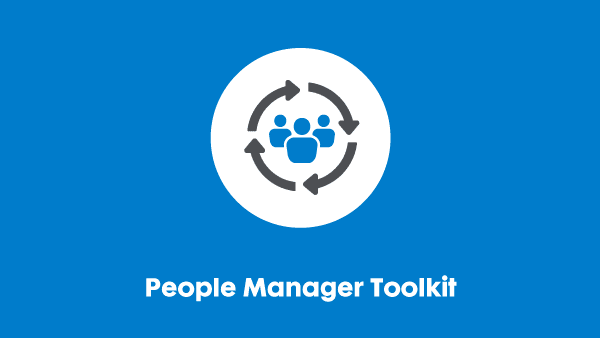Last updated: 11 September 2024

Factsheet – Schizophrenia
This resource is part of our Disability Essentials range. You can find the other free resources that are included in this range by clicking here.
What is schizophrenia?
Schizophrenia is a long-term mental health condition experienced by approximately one in 100 people. It is a complex illness and often considered a psychotic illness – which means the individual loses some contact with reality (see the NHS’s website for more information about psychosis).
As with most illnesses, it can range in severity and affects each person in a unique way.
Myth-busting
Schizophrenia does not cause a person to become violent. Violent behaviour only happens in a tiny minority. Violence in people with schizophrenia is usually due to other reasons, such as drug or alcohol misuse. Even then, violence towards other people is extremely rare, so it makes headline news when it happens.
Split personality is another myth linked to schizophrenia. It is not a feature of this condition and comes from the literal translation of the Greek word rather than the illness.
How does schizophrenia affect an individual?
There are many sub-types of schizophrenia, and they affect people in different ways, but the most common symptoms include:
- hallucinations – usually hearing voices or seeing things that are not real. Not all hallucinations are negative experiences for the person.
- delusions – strong and unusual beliefs that are not based on reality
- muddled or disorganised thinking linked to the hallucinations or delusions
- loss of interest in everyday activities, including personal care
- reducing their social contact with friends and family
- a lack of insight or recognition by the individual that they are becoming unwell.
The symptoms may develop gradually or suddenly. If there is a sudden onset, the person may need emergency medical care. Their emergency care plan should be followed, or if you can, call 999.
The causes of schizophrenia are unknown, but it is thought that a combination of factors is involved, including:
- genetics
- differences in brain chemistry – low levels of dopamine and serotonin
- brain development – complications during pregnancy and birth.
Triggers
There can be many different triggers for schizophrenia, and they can sometimes be hard to identify. Commonly identified triggers include:
- stressful life events
- drugs and alcohol misuse.
Potential impact on work
Most people who are diagnosed with schizophrenia can recover and have successful careers. Some people will make full recoveries, others will manage their symptoms well with occasional relapses, and others will need more support.
The most significant impact on work will be the onset of symptoms and diagnosis before the condition is well-managed or during a relapse if there is one.
Legal duties
The Equality Act 2010
In the UK, employers have duties to:
- prevent discrimination, and
- provide reasonable adjustments
For their disabled employees. This means that it is unlawful for employers to treat applicants, job candidates and employees unfavourably because of their disability.
The Equality Act also requires employers to make ‘reasonable adjustments’ for their disabled employees.
Suggested adjustments
All potential adjustments should be discussed with the employee before being implemented. They are best placed to know what they may need. This discussion should happen when the person is well.
- The employee may have a care plan which states what actions need to be taken in certain situations, such as ongoing support or if the person becomes unwell. If you receive this information, it should be followed where at all possible.
- The employee may ask you to inform them or someone else aware if there is a change in their behaviour or condition, as they may not be aware. A lack of insight is common in schizophrenia. Early intervention is key to a better and quicker recovery.
- Some symptoms, such as hallucinations, may not be totally controlled, so accommodations to allow these can be useful. These adjustments can be as simple as changing the desk position in an office, for example.
Reduce any known triggers in the workplace, such as stress. A stress risk assessment may be a valuable tool to achieve this. Regular reviews are also helpful, such as the routine one-to-one meetings with their manager.
- Flexibility on work location and hours can be beneficial, especially if someone is recovering from a relapse.
- If an employee has an irrational thought or a delusion, their manager should not focus on the content of the belief or try to adjust it. Doing so can exacerbate the paranoia or belief. Instead, they should make a temporary adjustment that allows the person to avoid the subject or object concerned until they are well again.
- If appropriate, the person may need to be encouraged to see Occupational Health, their GP, or contact an Employee Assistance Programme.
- People with schizophrenia will require time off work to attend appointments related to their condition, for example, routine check-ups or treatment appointments. Some people need periodic medication, which is only given in a clinical environment.
- Sometimes a person may need to take time off work due to the severity of their symptoms. Schizophrenia can be debilitating and terrifying for the individual, especially if they have no insight into their illness or are experiencing a psychotic episode. There may be times when a person needs to be in hospital for treatment. A graded return to work and duties can be helpful in these situations.
- It is best practice to have policies and procedures that distinguish between sickness absence taken for a reason relating to a disability and general sickness absence. Disabled employees must not be treated less favourably than their colleagues for a reason relating to their disability.
Further information
For more information on suggested adjustments, specific barriers for schizophrenia and information about the law, please see our other resources in the Knowledge Hub.
For more detailed information and advice about a specific situation, contact the Advice Service:
Tel: +44-20-7403-3020 |Textphone: +44-20-7403-0040
Email: advice@businessdisabilityforum.org.uk
Rethink Mental Illness
www.rethink.org
Tel: 0121 522 7007
Email: info@rethink.org
Mind
Granta House
15-19 Broadway
Stratford
London
E15 4BQ
www.mind.org.uk
Tel: 0300 123 3393
Email: info@mind.org.uk
If you require this content in a different format, contact enquiries@businessdisabilityforum.org.uk.
© This resource and the information contained therein are subject to copyright and remain the property of the Business Disability Forum. They are for reference only and must not be copied or distributed without prior permission.

